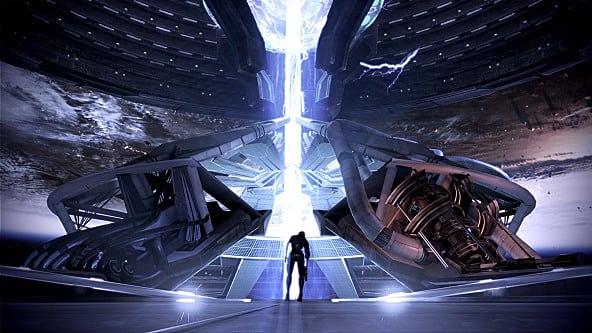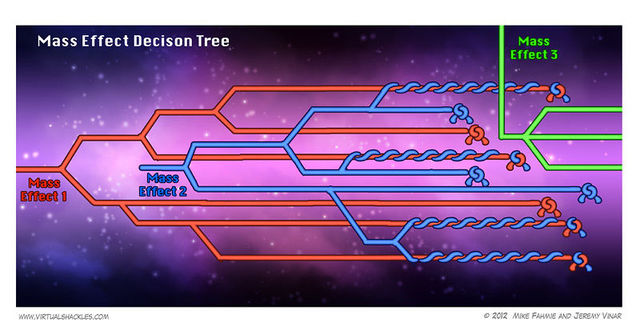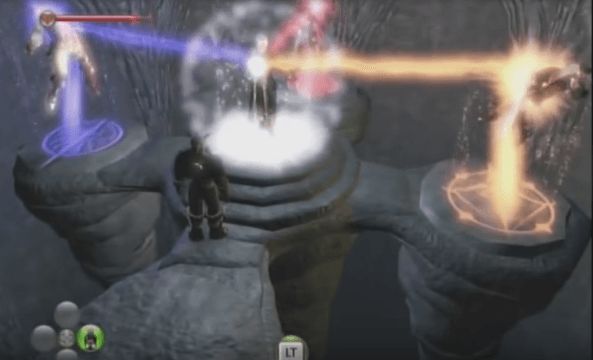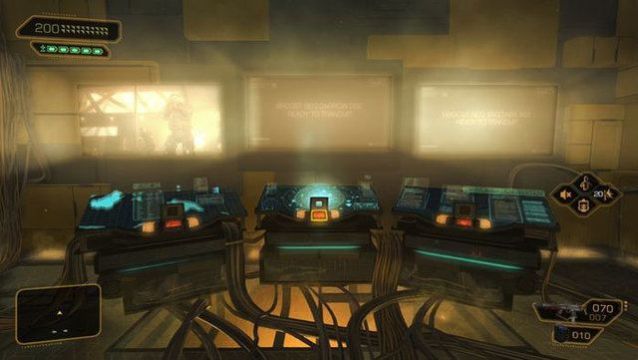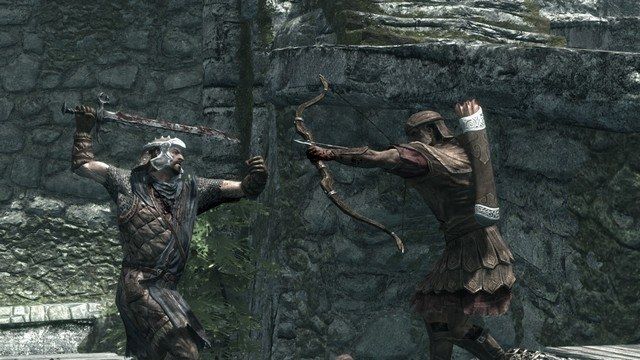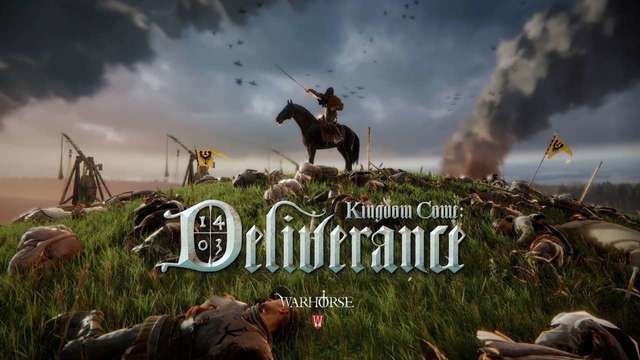“Your actions affect how the story unfolds.”
“Your choices matter!”
How many time have you heard promises like these, only to be thoroughly disappointed? Anyone who beat Mass Effect 3 can tell you all about that. Developers of RPGs these days use these sentiments to make us hyped about the different ways we can make our story go depending on what we do.
However, when the game finally comes out, we are often left with trite choices that do not have any real impact on how the game unfolds or where it takes us. At best, we end up in the same place, but with different people having come and gone along the way. At worst, we are given a dialogue wheel with “choices” that just make us do the same thing and end up in the same place. While the way we get there might be different, the end result is more or less the same.
While there are many games that do this, the worst offender is the Mass Effect series. The ending of ME3 was the biggest slap in the face to fans of the series who looked forward to the grand finale, the culmination of all of the choices that they had made. They were ultimately left with three choices: red, blue, or green. The difference that the “endings” made were so little that they might as well have not been separate at all.
The ending was not the only part of the game where your choice did not matter. There would be times where your dialogue wheel would pop up with a paragon, neutral, and renegade option. No matter what you chose, the same events would occur, only Shepard said something different. It did not help that the event was often as undesirable as getting punched in your junk, but you could do nothing to prevent it. This served as a lazy way to railroad the player and make the plot progress just for the sake of progressing.
However, as much as people hate on Mass Effect 3’s ending, it is not alone in this problem of lazy storytelling. We can see this happening over and over again…
Again, with Fable II
And again…
And again…
None of these endings would be such a problem if the choices actually felt like they mattered. At best, they brought a new cutscene with some enlightening information that did little to change the world at large. I am most disappointed that this happened with Deus Ex: Human Revolution, because of how much I love that game and that series. The endings were actually great, but from what we have seen of Deus Ex: Mankind Divided, it looks like your choices were all for naught, and players who chose one ending will face the same story as players who chose other endings.
A glimmer of light?
The Kickstarter-funded game Kingdom Come: Deliverance, looks like it is trying to break this trend in choices not having any real effect. The developers of Kingdom Come: Deliverance promise that your choices will have a sort of butterfly effect, where each choice able to make or break how your character’s story unfolds. However, as with every Kickstarter project, we must remain cautiously optimistic and not get our hopes too high. If Kingdom Come proves to be a huge success and breaks this trend, hopefully some of the bigger developers out there will take a lesson from them and apply what they have done to their future RPGs.
Do you think the impact of choices is an issue for AAA games right now? What other examples can you think of? Let me know in the comments!
